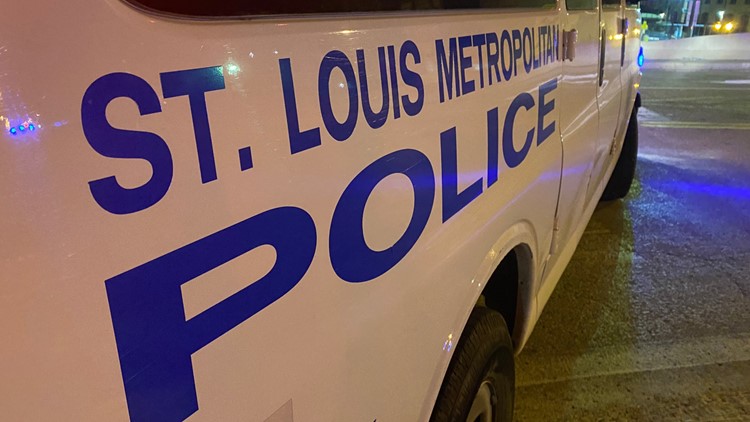ST. LOUIS — Eight years after Michael Brown’s death pushed the St. Louis region front and center into the national debate over police accountability, the city’s elected officials and its police associations are at odds over a new oversight plan.
St. Louis Mayor Tishaura Jones, a progressive Democrat elected last year in part on her pledge to hold police more accountable, this month signed into law a bill creating a Division of Civilian Oversight, an independent agency to investigate allegations of police misconduct and use of force incidents.
Jones, who is Black, said at a news conference before the Aug. 3 bill signing that Black St. Louisans are more than four times more likely to be subjected to force by police than whites.
“Accountability is the first step in building trust, and that will strengthen our enforcement and police department in the long run,” Jones said.
The new plan has drawn a stern response from the St. Louis Police Officers Association and a smaller officers’ group, the Ethical Society of Police, an association that largely represents Black officers. The St. Louis Police Leadership Organization, representing officers with the rank of sergeant and above, also opposed the change.
All three police associations joined together in a lawsuit seeking an injunction preventing the law from going into effect in September.
Sherrie Hall, attorney for the Ethical Society of Police, said officers welcome accountability, but that the new law is flawed because parts of it conflict with Missouri's Officers’ Bill of Rights law. For example, the St. Louis law allows officers to be questioned by oversight investigators immediately after an incident, without seeing the complaint or obtaining a lawyer.
“Those things are important," Hall said. "They’re important if you’re going to have an effective police force and be able to recruit and retain officers. They’re important because an officer should have the ability to know what they’re being accused of before they’re giving a statement, and to think it through."
Hall also worries that good officers could be targeted if a board member is simply anti-police.
Brown’s death, and the deaths of others at the hands of police, “pushed civilian oversight and police accountability into the national spotlight,” according to a 2018 report by the U.S. Department of Justice.
Brown, a Black 18-year-old, was shot to death during a street confrontation with Officer Darren Wilson on Aug. 9, 2014. Wilson was later cleared of wrongdoing but the shooting led to months of often-violent protests.
The incident happened in nearby Ferguson, Missouri, not St. Louis. But the resulting scrutiny shone a light on the sometimes troubled and confrontational relationship between police and Black men throughout the St. Louis region.
That spotlight grew brighter after George Floyd’s death at the hands of a Minneapolis officer in 2020. Today, more than 200 oversight boards exist across the nation, though they cover only a fraction of the approximate 18,000 police agencies.
How well they’re doing is up for debate. Information compiled by Mapping Police Violence found that the number of people killed by police annually has remained constant at slightly above or below 1,100 every year since 2013.
“One of the major challenges with oversight programs is the limited empirical evidence demonstrating their effectiveness,” the Justice Department report stated.
St. Louis officials hope the new approach is a step in the right direction. It replaces a review process established in 2015, the year after Brown's death. Under that process, complaints about misconduct and use-of-force were first investigated internally within the police department, then potentially reviewed by a Civilian Oversight Board. But most cases ended with the internal police review.
The new Division of Civilian Oversight will be led by a commissioner, retired FBI agent Matthew Brummund, and staffed with 10 investigators. The nine-member oversight board can make recommendations, but the personnel department decides when discipline is appropriate. Appeals go to the Civil Service Commission.
The law also establishes a new unit under the direction of Circuit Attorney Kim Gardner for the investigation of use-of-force issues. Gardner and police have a long history of butting heads.
In 2019, Gardner placed dozens of officers on an “exclusion list,” prohibiting them from bringing cases. The list was developed after a national group accused the officers of posting racist and anti-Muslim comments on social media.
In 2020, Gardner filed a lawsuit accusing the city, the St. Louis Police Officers Association and others of a coordinated and racist conspiracy aimed at forcing her out of office. The lawsuit alleged violations of the Ku Klux Klan Act of 1871, which was adopted to thwart efforts to deny the civil rights of racial minorities. A judge eventually tossed out the lawsuit.
Sgt. Mickey Owens, president of the St. Louis Police Leadership Organization, called giving Gardner a role in investigating police shootings "downright frightening.”
A 2021 report by the St. Louis civil rights law firm Arch City Defenders found that St. Louis officers killed 69 people from 2009 through 2019. Fifty-eight of those killed were Black.
Among them was Anthony Lamar Smith. White Officer Jason Stockley and his partner tried to corner Smith in December 2011 after observing what they thought was a drug transaction on a fast food parking lot. Smith drove away, nearly striking the officers.
During the ensuing chase, Stockley said, “Going to kill this (expletive), don’t you know," according to dashcam audio used as evidence in his trial.
Smith, 24, was fatally shot by Stockley at the end of the chase. At his 2017 trial, Stockley testified he thought Smith was reaching for a gun that was found inside Smith’s car. Prosecutors alleged that Stockley planted the weapon.
Stockley was acquitted, leading to weeks of often violent protests.
Activist John Chasnoff has been pushing for a new form of better police oversight in St. Louis for 23 years.
“I think it’s a big step forward,” Chasnoff said of the new plan. “It’s very difficult for any organization to investigate itself, hold itself accountable. This, for the first time, takes those investigations out of the police department and I think that’s a big step toward fairness and unbiased investigations.”



